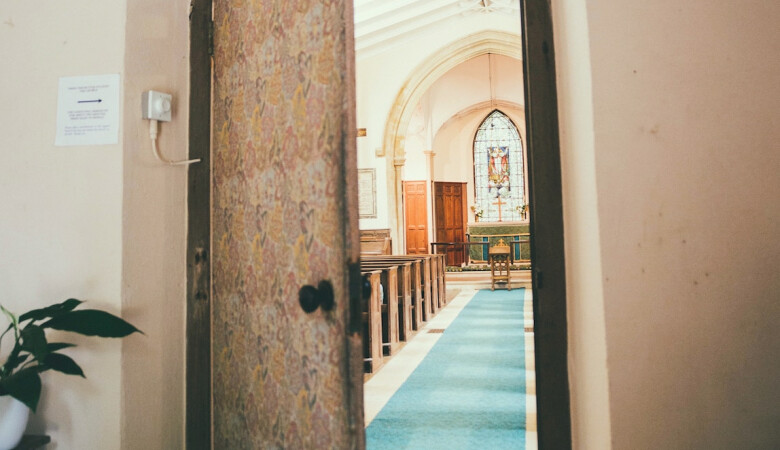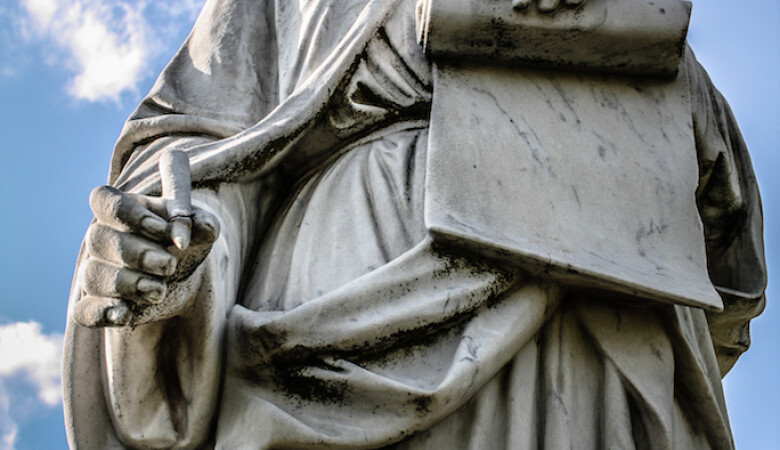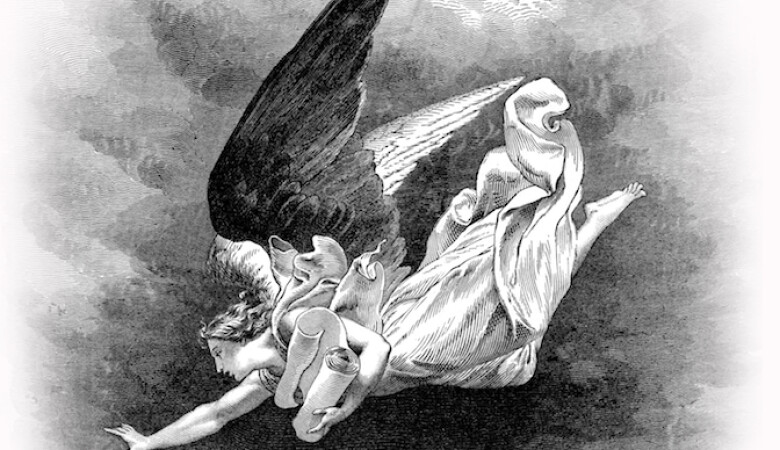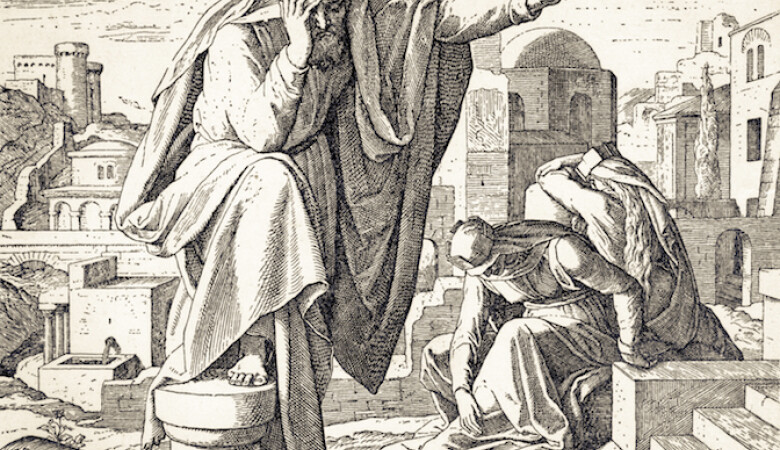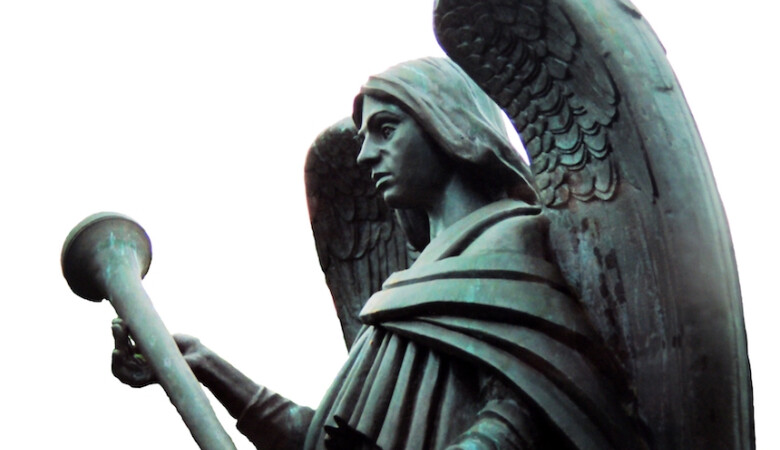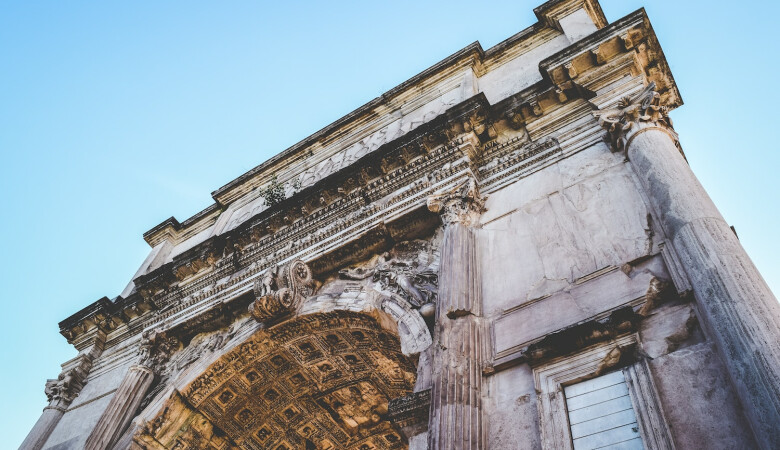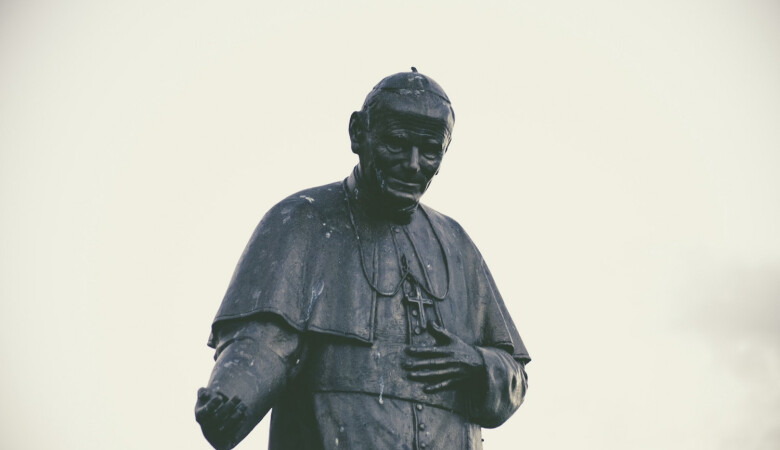Heavenly Memories: No Heavenly Regrets (Revelation Sermon 40 of 49)
March 18, 2018 | Andy Davis
Revelation 21:4
Heaven
sermon transcript
Introduction
For a year or two, I have arisen early in the morning with Calvin and Daphne to read Courtney Anderson’s biography of Adoniram Judson, a missionary to Burma. The biography is called To the Golden Shore. The golden shore refers to Burma, which had a golden king. Everything there seemed to be made of gold, including the emperor’s palace. Those who went to the emperor to ask him for something fell at his golden feet. Imagery of gold permeated everything. So To the Golden Shore was an image that Courtney Anderson chose for the entire mission to Burma, but at the end of this biography, it had a different, higher meaning.
At the end, Anderson writes, “At 15 minutes after 4:00, on Friday afternoon, April 12th, 1850, Adoniram Judson reached his golden shore through more suffering than I can put into words. Very few people died as hard as he did, suffered physically as long as he did.” The golden shore was a symbol of how difficult it was for Judson to live his life to bring people to Christ. In a spiritual sense, he died at sea and finally reached his golden shore in his death.
Randy Alcorn, in his book, Heaven, opens with a powerful story, an illustration from 1952, of a long distance swimmer named Florence Chadwick, who did stunning things, including swimming the English Channel four times, twice each direction, setting the record for that long distance swim. She had a goal to swim from the Catalina Island off of the coast of California to the mainland. On the day of the swim, the weather was foggy and chilly, and she could hardly see the boats accompanying her. She swam and swam and swam for 15 hours. She begged, finally, to be taken out of the water along the way. Her mother, in one of the boats alongside, told her she was very close and not to give up. Finally, physically and emotionally exhausted, she stopped swimming and was pulled out. When she got onto the boat, she discovered that the shore was less than half a mile away, covered with fog. At a news conference the next day, she said, “All I could see was the fog. I think if I could have seen the shore, I would have made it.” Two months later, she succeeded. It was just as foggy, but she said, “I kept the mental image of the shoreline in my mind as I swam, and it enabled me to finish.”
Randy Alcorn, picking up on this, says, “Perhaps you’ve come to this book burdened, discouraged, depressed, or even traumatized. Perhaps your dreams—your marriage, career, or ambitions—have crumbled. Perhaps you’ve become cynical or have lost hope. A biblical understanding of the truth about Heaven can change all that. I pray this book will help you see the shore.” I am praying that the sermon series will help you see the shore. I yearn to give you a fuller scriptural view of the eternally glorious world that awaits all of us in Christ.
In contrast to Adoniram Judson, Stephen Hawking died this week at the age of 76. He was a brilliant physicist, cosmologist, atheist. He suffered all his adult life with Lou Gehrig’s disease, or ALS, confined to a wheelchair, and became a picture of a secular hope, of what the human spirit can overcome. He was a thoroughly secular man. His work was seeking a unified theory that would explain everything: Origins, destinations, and everything in between. That is what he sought with physics and with mathematics. His most famous statement about religion was: “I have lived with the prospect of an early death for the last 49 years. I’m not afraid of death, but I’m in no hurry to die. I have so much I want to do first. I regard the brain as a computer which will stop working when its components fail. There is no heaven or afterlife for broken-down computers. That is a fairy tale for people afraid of the dark.” In that spirit, he died. It is an amazing insight in the way he looked at human life, that we are nothing more than biochemical machines with certain biochemical reactions in our brains, and when all that stops, then life ends. As brilliant as Stephen Hawking was, I have the joy and privilege this morning to contradict him based on Scripture — the word of God; based on faith in what the Lord has told us of the shore to which we are sailing.
What Will Heaven Be Like?
Meditate on Truths about Heaven
For two weeks, we have been unfolding Revelation 21 and 22, the best, most careful description in the Bible of the world to which we are going. Revelation 21:1-3 says, “Then I saw a new heaven and a new earth, for the first heaven and the first earth had passed away, and there was no longer any sea. I saw the Holy City, the new Jerusalem, coming down out of heaven from God, prepared as a bride beautifully dressed for her husband. And I heard a loud voice from the throne saying, ‘Now the dwelling of God is with men, and he will live with them. They will be his people, and God himself will be with them and be their God.’” What a magnificent vision of our future blessedness, of our future happiness; not a fairy tale for those afraid of the dark, but a reality to which we are moving.
It is beneficial to take the Scriptures as they are given, and extensively meditate on them. The Westminster theologians said, “The Word of God is not only what is printed on the page, but what can be logically deduced from the scripture.” In this way, we build a theology. I want us to have a theology of Heaven, but I do not want to go too far afield from the text. Amen. I do not want to be like the astronaut hundreds and hundreds of feet away from the Space Shuttle with a jet pack but no tether. I want to tether to the text, but I will do everything the text allows me to do.
Heaven will be far greater than anything we can imagine. Ephesians 3 says, concerning God, “Now to him who is able to do immeasurably more than all we ask or think.” The NIV, says “More than we can ask or imagine.” That works there, because Paul is talking about things that push the limits of what we can think; that is what imagination is about. We are thinking about what can be scarcely imagined. Ephesians 3:20-21: “Now to him who is able to do immeasurably more than all we ask or imagine, according to his power that is at work within us, to him be glory in the church and in Christ Jesus throughout all generations, for ever and ever! Amen.”
No Death, Mourning, Crying, Pain
No More Death — The Resurrection Body
This morning, we will focus on Revelation 21:4: “‘He will wipe every tear from their eyes. There will be no more death’ or mourning or crying or pain, for the old order of things has passed away.” We are commanded to meditate on heaven. Colossians 3 makes that plain. Revelation 1:3, regarding the whole book of Revelation, says, “Blessed is the one who reads the words of this prophecy, and blessed are those who hear it and take to heart what is written in it, because the time is near.” Read these words and take them to heart. Ponder them. Cherish them.
The great Puritan preacher and theologian, Jonathan Edwards, focused on Heaven every day of his life. He said, “It becomes [or benefits] us to spend this life only as a journey toward heaven... to which we should subordinate all other concerns of life. Why should we labor for or set our hearts on anything else, but that which is our proper end and true happiness.” Every moment of your life should be seen as a journey toward Heaven, and everything should be subordinated to that.
After an extended detailed theological teaching and meditation on the resurrection body, Paul applies that to our practical Christian lives of service to God and to Christ. 1 Corinthians 15:58 says, “Therefore, my dear brothers, stand firm. Let nothing move you. Always give yourselves fully to the work of the Lord, because you know that your labor in the Lord is not in vain.” That includes everything that God has equipped us to do in the body of Christ: specific spiritual gift ministry and all of the general duties that are part of the Christian life —intercessory prayer, evangelism and missions, holiness and all of those things. Stand firm, do not be moved by anything that happens to you, and give yourself fully to your labor in the Lord. Meditation on Heaven will do that.
False aberrant views of Heaven are rampant. Every false religion has a view of Heaven. Roman mythology has Elysium, a lush shaded meadow, like an outdoor park, with luscious fruits growing and athletic contests occurring. In Norse mythology, it is Valhalla, a feasting, banqueting hall, a place to drink and eat meat and celebrate valiant military victories with their god Odin. Radical Islam teaches a heavenly paradise for warriors who die in jihad, including 70 to 100 beautiful virgins with wide dark eyes. The blessed will recline on couches in a beautiful garden, like Eden, and enjoy sensual pleasures forever, including rivers of pure water, fresh milk and rivers of wine. Buddhism speaks of seven circles of heaven that are part of this present physical world, which are themselves temporary. The ultimate goal is Nirvana, which is nothingness, a drop in an endless sea — one loses his identity and ceases to exist. Native American tribes like the Lakota in North and South Dakota conceived of happy hunting grounds where one would continue life as a hunter and do very well.
All these conceptions of Heaven illustrate the truth of Ecclesiastes 3:11: “He has also set eternity in the hearts of men; yet they cannot fathom what God has done from beginning to end.” All people have eternity in their hearts. We have a conception of the afterlife, the world that is coming. But Scripture reveals that we cannot rightly think about Heaven on our own. If left to our own unaided imaginations, we will think wrong thoughts. 1 Corinthians 2:9-10, a well-known verse, says, “No eye has seen, no ear has heard, no mind has conceived what God has prepared for those who love him… [people stop there and miss context] but God has revealed it to us by his Spirit. The Spirit searches all things, even the deep things of God.” Those who stop at verse 9 assume we cannot know what Heaven will be like, because we do not know what God has prepared for those who love Him. But God has revealed some of it to us by the Spirit. Yes, we see through a glass darkly, but we ought to take what the Spirit reveals in Scripture, and by the Spirit’s leading, through exegesis and good interpretation, try to understand.
This magnificent verse, Revelation 21:4, says, “‘He will wipe every tear from their eyes. There will be no more death’ or mourning or crying or pain, for the old order of things has passed away.” We are in the first world, the “old order of things”, now, but there is a second world coming. That is a more literal translation. The first things will have passed away. This old order of things, this present world, is filled with incalculable suffering and pain and misery — a river of sin and death. Adam sinned in the garden, and as Romans 5 says, in Adam we all sinned. Through Adam, we received the death penalty and a corrupt sin nature. But the text says that He will wipe every tear from our eyes. That is a powerful image to me of God’s intimate, relational comforting. With His own hand, He will wipe away our tears.
Think of all the tragic funerals throughout history. Think of infant mortality. Almost a million infants die every year. How do we measure the grief and tears that has brought to mothers and fathers for centuries? How much more the death of toddlers, when the child has wrapped his parents around his little finger and then they have to bury him? Few things would be more difficult and tragic in this life than burying a child.
There are also countless tears connected with suffering —tears cried by people in intense pain, like burn victims, or cancer victims, people in their final stages, with nothing to relieve their agony. Or tears connected with material loss, like when a house burns down. In Lexington, Massachusetts, at my first church after I came to Christ, there was a fire caused by electric lights on a tree. It was very tragic — a grandmother died of smoke inhalation, and they lost everything. We were there to try to help, but it was heartbreaking. Think about farmers who lose all their earthly wealth when hail or an early freeze comes and destroys their harvest, and they have to start over again, if it is even possible.
Think about tears cried by lonely people, such as single people who desire a spouse, tempted to think that no one will ever love them, feeling so lonely in this world. Even what we might consider trivial tears are noted by God. My tears as a 6-year-old learning to ride a bike were significant to me. I started the process by riding down a hill. It was great until I crashed into a teenager’s car. He was waxing it and buffing it; that was his baby, and he chased me through the woods. I cried tears of fear that day.
There are also tears of bitter remorse over sin. Think about people who have ruined their marriages through sin, men or women, and they want to but cannot save it. They lament and weep, and there is nothing that can be done for it. There are tears cried by old people in nursing homes as they look at a photo album or something that brings back memories — the people in it are gone; that time is gone. They grieve the loss of an era.
Perhaps the most poignant in the sequence of redemptive history are tears that we will all likely cry on Judgment Day. This is hard for us to imagine, but when we give Christ an account of everything done in the body, good or bad, we who believe will not be condemned. We will not hear the words, “Depart from me, you who are cursed, into the eternal fire prepared for the devil and his angels.” Though not condemned, we are not free from accountability. We will look Christ in the face and explain our lives, as it says that we will do in 2 Corinthians 5:10: “For we must all appear before the judgment seat of Christ, so that each of us may receive what is due us for the things done while in the body, whether good or bad.” When we see the portion of our lives that produced wood, hay and straw go up in flames, we will suffer loss and will feel emotions of regret and will weep. How sweet then will it be for Christ’s own hand to wipe away our tears and say, “No more. We are done. You will never weep over those things again.”
Closely connected with that is this next idea that there will be no more death. John Owen, the Puritan theologian, wrote a great work on the atoning work of Christ called The Death of Death in the Death of Christ. What a great title that is. When Jesus died and rose again, those two actions together destroyed death. But the victory that God the Father willed that Jesus would win over death was to be a long unfolding victory, not an instantaneous destruction of death. The Father said to the Son, “Sit at my right hand until I make your enemies a footstool for your feet.” [Psalm 110:1; Luke 20:42-43] And He says in 1 Corinthians 15:25-26 “Christ must reign until He has put all His enemies under His feet. The last enemy to be destroyed is death.”
He will destroy death. He will win. Death will be swallowed up in victory! For you basketball people, that is a 50-point win in the championship game. Christ will win a resounding victory over death, but not yet. That is why he wept at Lazarus’ tomb, out of compassion, because of the sorrow that death has caused over centuries of redemptive history,
Revelation 20:14 talks about the final end of death: “Then death and Hades were thrown into the lake of fire. The lake of fire is the second death.” That is the death of death — no more death. The key to this is the resurrection body, as we have previously discussed. 1 Corinthians 15:50-52 says, “I declare to you, brothers, that flesh and blood cannot inherit the kingdom of God, nor does the perishable inherit the imperishable. [We cannot go to Heaven just as we are. We must leave behind this body of death and sin, praise be to God for that. Romans 7 says we will be delivered from this body of death.] Listen, I tell you a mystery: We will not all sleep, but we will all be changed — in a flash, in the twinkling of an eye, at the last trumpet. For the trumpet will sound, the dead will be raised imperishable, and we will be changed.”
Earlier in that chapter, in four couplets, Paul compared the body of death and the resurrection body — sown in weakness, raised in power; sown a perishable body, raised imperishable; sown in dishonor, raised in glory; sown a natural body, raised a spiritual body. Cling to those four adjectives. It will be an imperishable body. It will be a glorious body. We will shine like the sun in the kingdom of the Father, radiating with the glory of God. It will be a powerful body. Isaiah 40 says, “You will run and not grow weary; you will walk and not be faint.” Amen. Limitless power coursing through our resurrection bodies.
And It will be a spiritual body. We do not fully know what that means, but we have some indication with the resurrection body of Jesus, which was doing different things than natural bodies — escaping wrapped grave clothes covered with sticky resinous substance; coming through the walls of the cave, or the heavy stone door, long before the women arrived when the angel moved the stone for them. Later, the disciples were in the upper room with the doors locked for fear of the Jews, and Jesus came and stood among them. Isn't that great? He told them, as he needed to, “Peace be with you.” They were overwhelmed with feelings of joy when they saw their Lord. He took food and ate it and said to Thomas, “Touch my hands and see” because Thomas had said, “Unless I put my fingers in the nail marks, I will not believe.” Jesus is physical and yet somehow spiritual, and our bodies will be the same.
“Hard” Memories Purged from Pain
No More Pain
All of us understand pain. Some of the worst pain in this life is mental and emotional, such as the anguish of depression and sorrow and grief and regret. Parents who have endured the pain of teenage suicide would choose physical pain rather than the emotional anguish they feel every time they remember their son or daughter, every time they see a photo, every time they walk into their room or see a stuffed animal that was in his or her crib. There is a kind of a therapeutic forgetfulness in this life so that we can move on. But what will we remember in Heaven about our lives here on earth? That is a question that has occupied me for over a decade — no pain, no grief, no mourning, no regret in Heaven. No psychological trauma, no anguish, no guilt. All those things are painful.
Whether or not we will have memory of the painful events in our lives, though, is a question on which some men that I respect are divided. John McArthur says to some degree, provisionally, there will not be memory of these things. He cites Isaiah 65:17-18: “Behold, I will create new heavens and a new earth. The former things will not be remembered, nor will they come to mind. But be glad and rejoice forever in what I will create, for I will create Jerusalem to be a delight and its people a joy.” That is the New Jerusalem, New Heaven, New Earth. I understand Isaiah is saying the former things will not come to mind or be remembered. But it does not mean we forget. Many verses use that kind of language. We still remember the Red Sea crossing even though something greater has come. We treasure both the Red Sea crossing and the greater exodus that Jesus won. If we do not remember, we will not get to do that. This seems to be saying instead that the New Heaven, New Earth will be so great that any memories of the past life will be as nothing compared to it. McArthur is saying that he cannot imagine how we could remember the grief and misery and suffering of this life and not feel pain. His provision is partial amnesia or some kind of cleansing of the memory.
On the other end of the spectrum is John Piper. He says there will be both memories and sweet heavenly regrets. He wrote, “I want to live my short life on earth with as few regrets as possible. … When I think on these things, it makes me tremble at the prospect of living a trivial, self-serving, comfortable, middle-class, ordinary, untroubled American life. I can’t keep eternity out of my mind. Life is short and eternity is long. Very long. It is a long time to regret a wasted life. … Which raises the question: Is there regret in heaven? Can regret be part of the ever-increasing, unspeakable joy of the age to come, purchased by Jesus Christ? My answer is yes. I am aware of promises like Revelation 21:4, ‘He will wipe away every tear from their eyes, and death shall be no more, neither shall there be mourning nor crying nor pain anymore, for the former things have passed away.’ But I don't think this rules out ‘tears of joy,’ and it may not rule out ‘regretful joy’.”
I respect both John Piper and John McArthur, but I disagree with both of them. Instead, I suggest that there will be perfect memory in heaven with no associated pain, mourning, or crying. Mourning is the inner psychological mental state, and crying is the action that comes out of that. Both are gone.
How is that even possible? I would answer, how could it be any other way? How could we celebrate the grace of God in Christ to a multitude greater than anyone could count if we do not remember anything about their lives, if we are not able to celebrate in detail God’s grace to specific sinners, how he worked to bring that person through many troubled waters to repentance and conversion, and then through sanctification to Heaven? I want that story in Heaven so that we can celebrate the beautiful diversity of the redeemed.
The thing we all likely worry about most on this topic is whether we will I remember our sins in Heaven. On a gut level, we all would hope the answer is “Of course not! Heaven is a happy place!” My response is, how will we celebrate the amazing grace of God without it? Think of the conversion of Saul of Tarsus on the day he woke up breathing out murderous threats against the Lord’s disciples. Before that, he carried out those murderous threats by dragging off men and women to prison. When the Sanhedrin met, he cast his lot against those Christians, condemning them to death, consenting and delighting in their executions, including Stephen. On that particular day, he was traveling on the road to Damascus when Christ appeared to him and said, “‘Saul, Saul, why do you persecute me?’ ‘Who are you, Lord?’ ‘I am Jesus, the one you are persecuting. Now, get up and go into the city and you'll be told what you must do.’” On the road to Damascus, he saw a part of the glory of the resurrected Christ and was transformed.
Did he forget what man he had been before that? Not at all. He writes in 1 Timothy 1:13-17: “Even though I was once a blasphemer and a persecutor and a violent man, I was shown mercy because I acted in ignorance and unbelief. The grace of our Lord was poured out on me abundantly, along with the faith and love that are in Christ Jesus. Here is a trustworthy saying that deserves full acceptance: Christ Jesus came into the world to save sinners — of whom I am the worst. But for that very reason I was shown mercy so that in me, the worst of sinners, Christ Jesus might display his unlimited patience as an example for those who would believe on him and receive eternal life.” [Will that display, which works to convert people like us, not also do very well in heaven? He ends with this beautiful doxology:] “Now to the King eternal, immortal, invisible, the only God, be honor and glory for ever and ever. Amen.” I do not see heavenly amnesia being a part of that. I think it is heavenly celebration of God’s grace to Saul of Tarsus.
Will David remember what happened with Uriah the Hittite? Yes. In Daniel 4, we can argue that Nebuchadnezzar was transformed and saved eternally. Will he remember that he was a megalomaniac pagan tyrant who used his authority to oppress the people he had conquered, even to the point of condemning all of his counselors to death if they could not tell him what his dream was? Will he remember throwing Shadrach, Meshach and Abednego into a fiery furnace, because they would not bow down to his golden idol? Will he remember in Heaven, when Daniel told him to renounce his wickedness, what that wickedness was? Yes. And all, in those memories, will give God the glory for their salvation.
Mary Magdalene will remember that she was inhabited with seven demons. The woman whom the Pharisees thought of as “sinful” wept over Jesus’ feet and washed his feet in her tears and dried them with her hair. Because Jesus forgave her abundantly, she poured out her love for him abundantly. There is a link between the two. That will work so beautifully in Heaven. The Samaritan woman whom Jesus met and saved at the well said, “I have no husband.” He responded, “You are right in saying you have no husband. In fact, you have had five husbands, and the man you are living with now is not your husband. What you said is quite true.” Do you think she will remember that whole story? I think she will.
I think the centurion who oversaw the crucifixion of Jesus is in Heaven. The centurions seem to do well in the New Testament — they are typically good guys. This centurion testified after Jesus died, when the earthquake and eerie darkness occurred, “Truly, this man was the Son of God.” That is the fruit of Jesus’ prayer before he died, “Father, forgive them, they do not know what they are doing.” That was not a universalistic prayer of a high priest praying and hoping that some people would be forgiven. That was a specific high priestly prayer for one of his sheep who was about to cross over from death to life. “Father, forgive him. He does not know what he is doing.” Do you think in Heaven that centurion will know that he was the one who killed Jesus? I think so. And he will celebrate God’s grace to him for bringing him, a pagan Roman, to salvation.
Tertullian said, “The blood of martyrs is seed for the church.” Will the martyrs remember their suffering, their blood that was shed, and those who persecuted them? If some of the persecutors became brothers and sisters in Christ, then the blood of martyrs was a seed. Out of their bloody seed came new Christians who had persecuted them perhaps a day or a month or a year prior. Will those remember that they were persecutors? In Heaven, will John Newton remember his former profligate life, his wicked life, and all the people he enslaved as a slave trader?
Corrie ten Boom tells a story about an SS guard in one of the death camps she was in, where some of her family died. She met him later, and he was so filled with joy because he had come to faith in Christ. He wanted to shake her hand, but she could not reach out her hand because of the difficulty of memory. Is it possible that they will have full memory in Heaven, along with full, rich deep fellowship in Heaven?
Will Jim Elliot be able to spend eternity worshiping side by side with the Huaorani who killed him and his friends, and who were later led to Christ by his courageous wife, Elizabeth Elliot? I think they are already doing so, but it will be even better in the New Heaven, New Earth.
The tapestry of grace that God has ordained through His providence is woven through with various colors of thread, some dark, some light. The pattern does not make much sense to us now, as though we are looking at the backside with the jumble of knots when we consider the painful trials of life. But when we see the front side of the tapestry when we are in Heaven, in the presence of the beauty and the radiance of that place, we will rejoice.
Ephesians Chapter 2:6-7 is the best verse to prove and illustrate what I am saying. “And God raised us up with Christ and seated us with him in the heavenly realms in Christ Jesus in order that in the coming ages, he might show the incomparable riches of his grace expressed in His kindness to us in Christ Jesus.” In the coming ages, He will show us how gracious He has been. Heavenly amnesia does not allow for that to happen. Forever, we will put on display just how gracious God was to us, and we will celebrate that with no mourning, no crying, no pain, but absolute joy and delight. While we live in this world, we need to feel all kinds of pain, physical and emotional and spiritual. We need to feel pain physically so that we will stop doing whatever we are doing. If you are burning your hand, you do not want to wait until you smell smoke. It is a grace and a gift from God to feel instantaneous pain to get you to move your hand away from that to avoid significant damage to your hand. In Heaven, we will not need any of that. If injury is even possible, we will experience instantaneous healing. The speculations are limitless.
But in this world, we need spiritual, emotional, psychological pain connected with our own sin. Pain enables us to “Grieve, mourn and wail. Change your laughter to mourning and your joy to gloom.” [James 4:9] We need to feel pain for your sin, because we are not finished being led astray by the world, the flesh and the devil. We are still in danger, and the pain keeps us from future sin. It enables us to genuinely repent and turn away from damaging patterns of life, so we will stop doing them. In Heaven, we will not need it. There will not be any world or flesh or devil, not the way we define the world as an alluring, enticing whore of Babylon. That is gone. The devil will be in the Lake of Fire. Our current flesh will be gone. We will have a resurrected nature, so we do not need grief or mourning or pain over our sin in Heaven. But if you do not feel it now, you are in great danger. It may be that you are not a Christian. There is a place for grief and sorrow over our sin now, but not in Heaven.
How can there be memory of our sins without any mourning? Think of it as having the stinger removed. 1 Corinthians 15:55 says, “Where, O death, is your victory? Where, O death, is your sting?” Death has been defanged by Jesus. The sting of death is sin, and the power of sin is the law. The law gets defanged for us. In Heaven, there will not be any law for us, only the moral beauty behind the law. We will not need to be commanded to love God with all of our hearts, because we will do so easily. We will not need to be commanded to love our neighbors as ourself. We will do so. We will not need the law, and there will not be any stinger embedded in the memories.
Psalm 30:5, 11-12 says, “Weeping may stay for the night, but rejoicing comes in the morning. … You turned my wailing into dancing; you removed my sackcloth and clothed me with joy, that my heart may sing your praises and not be silent.” We remember so we can celebrate what He has done to comfort us. We will remember all of our sorrow and sadness and the circumstances of how we came to Christ. I read recently about how John Wesley, before his conversion, was on a ship in a terrible hurricane. The sea was heaving, the waves were crashing over the deck, and the sails were being shredded. He was certain it was his last day on earth. A group of German Moravian Christians on the ship were singing and praising God. He knew, watching them, that he was not converted. Later, at a Moravian prayer meeting at Aldersgate, he found Christ. He pursued the Moravians because they had something he did not have. In later years, when he looked back at that storm, did he look on it as horrible and awful or as the instrument of God to bring him to salvation?
Do you think in Heaven Joni Eareckson Tada will remember that fateful day in 1967 when she dove off the bridge into the shallow Chesapeake Bay and snapped her spinal column? She will be in her resurrection body, and she will celebrate God’s grace. How could we understand her life apart from her circumstances, from which her ministry flowed in large part. It would not make any sense.
As a trustee of the International Mission Board, I get to interview missionaries. When we meet these folks, we find out how they came to Christ. With married couples, we get to find out how they met. About two months ago, we met a couple who met in college at a Christian ministry party. She said, “I met him, I didn't like him at all. Then I left the party and backed into his car, crushed it, so we met again and we got to know each other.” They were both laughing at that story. I can tell you it was not funny the night it happened, but they can laugh about it now. Take that and multiply it by infinity. That is what heavenly memories will be like — no sorrow at all, just joy of what God did, how He used our weakness and our sorrow and our sin and our smallness and our pettiness and overwhelmed it with grace and built this incredible church. We will celebrate all of it.
Applications
Come to Christ!
First and foremost, I yearn for everyone listening to my voice today to be there in that world where there is no more death or mourning or crying or pain. Hell is the exact opposite. The inhabitants of Hell swim in death forever — an eternal death. “The worm does not die, and the fire is not quenched.” We cannot put into words what the pain and the mourning and the regret will be like; it will be far worse than we can imagine. I sometimes get a foretaste as I am sharing the gospel with people. I wish they could understand how much they will re-live that moment, if they do end up in Hell. They will go back to the moments they heard the gospel turned their back on it.
Adoniram Judson went to ask the emperor of Burma for religious tolerance in his nation. He somehow gained an audience with the golden ear, and he fell at the golden feet. He and his co-workers made their pitch, including sharing the Gospel. The emperor listened for a while and then stopped, dropped the tract on the ground, stepped on it and walked out of the room. Judson never saw the emperor again. I asked my kids, as I was reading that to my them, “Do you understand how that moment was exactly the opposite of what it appeared?” It appeared that this American missionary was groveling on the ground begging for a favor from the mighty emperor, but what was actually happening was that an emissary of the true Emperor of the universe was there offering this sinner a chance at amnesty from all of his sins so that he would spend eternity on the true golden shore.
Satan is so deceptive to obscure what is really happening. I am begging all of you who know that you are on the outside looking in. Now, today is the day of forgiveness, the day of salvation. I, an emissary of the King, am begging you, be reconciled to God.
Christians
If you are already reconciled and you are a Christian, how shall you now live? Pursue the two journeys. Internally, grow in holiness. Put sin to death, because some day you will be pure and holy. Externally, spread the Gospel. Talk to people this week, invite them to church, invite them to faith in Christ, invite them into a conversation about this eternal world to which we are going. How many people surround us every day with Stephen Hawking’s atheistic mentality? Tell them the truth while there is still time.
Closing Prayer
Close with me in prayer.
Father, thank you for the time that we have had today to celebrate your grace and your goodness, thank you for my friend Rob Hatcher, for the way I have been able to watch his family love on him and care for him, and for the grace you have shown him, and for the privilege of being part of that in a small way. He represents a multitude greater than anyone could count, and we will be celebrating your incredible working, so diverse, so detailed in bringing people to Christ. I cannot wait. Lord, give us joy, give us energy, give us the ability to stand firm and let nothing move us and be abounding in the work and the labor of the Lord. In Jesus’ name I pray. Amen.







